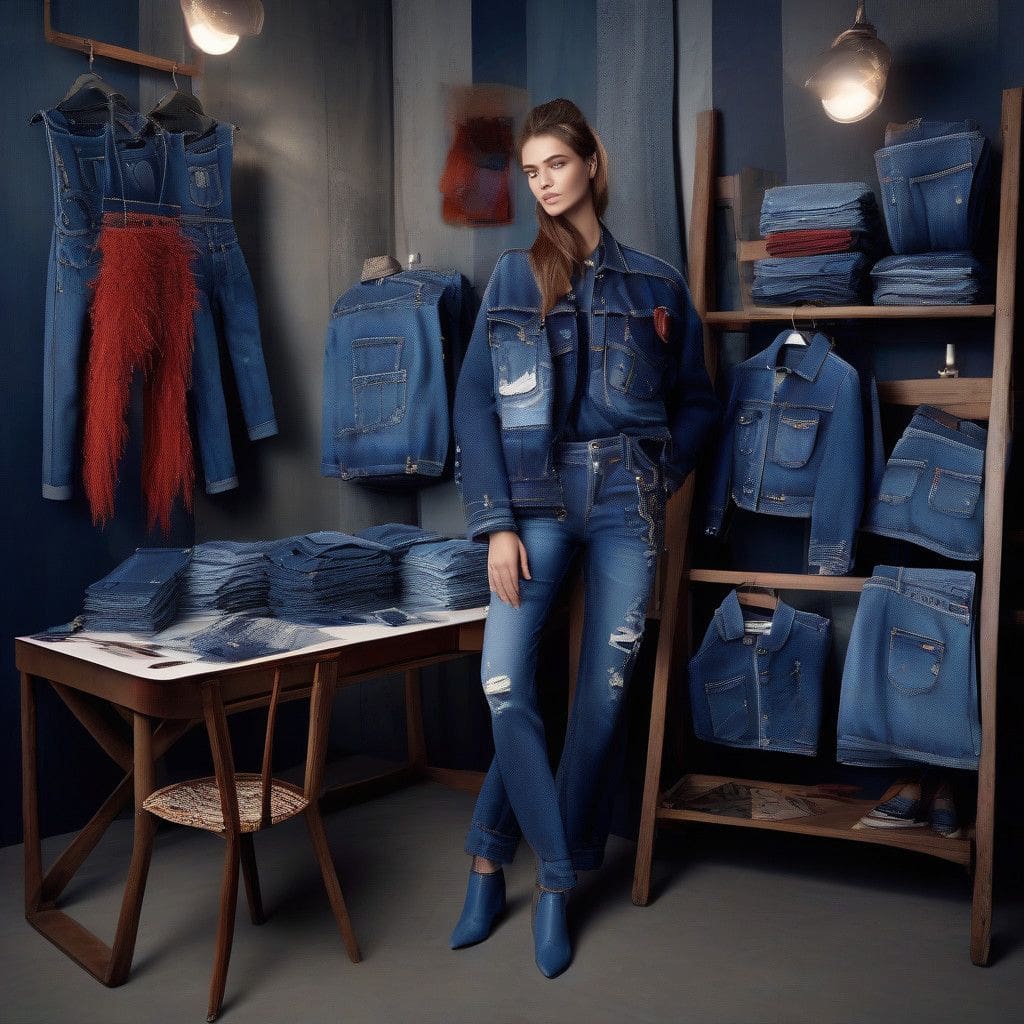Milan Fashion Week is a prime venue for showcasing creativity, and Diesel’s Spring/Summer 2025 show did not disappoint. The iconic brand, synonymous with denim craftsmanship, displayed its commitment to innovation while addressing the pressing issue of fast fashion. This season, Diesel’s message resonated strongly, accentuated by conversations with music and fashion influencers who support the cause of sustainability.
Imran Amed, Editor-in-Chief of The Business of Fashion, engaged in a fascinating dialogue with Diesel’s friends Damiano David and Tinashe. Their exchanges emphasized the necessity of sustainability in an industry plagued by the consequences of fast fashion. Fast fashion has been criticized for its detrimental impact on the environment, with massive waste generation and unsustainable production practices contributing to significant ecological damage. By spotlighting public figures, Diesel aims to bolster its message, effortlessly blending style and substance.
Designer Glenn Martens took center stage, sharing insights into the inspiration behind his latest collection for Diesel. Known for his inventive designs, Martens has revived the brand’s essence while staying true to its roots. His work often reflects an understanding of contemporary culture, merging street style with high fashion. This season’s collection exemplifies this harmony. With unique silhouettes and methodical fabric choices, Martens invites consumers to appreciate the artistry behind each piece.
Diesel’s dedication to combating fast fashion isn’t merely an afterthought but core to its operational ethos. The brand has embraced a circular economy model, which includes initiatives for recycling, reusing, and responsible sourcing. For instance, they are developing denim made from recycled materials—an approach that not only lessens the environmental burden but also speaks to the modern consumer’s desire for eco-friendly products. Rather than contributing to the overwhelming tide of disposable fashion, Diesel’s approach promotes longevity and quality.
The conversation with Amed captures a critical moment in fashion, where words translate into action. This transformation involves retraining consumers to value quality over quantity, thus challenging the status quo. By integrating such discussions into the runway experience, Diesel fosters a dialogue that elevates the collective consciousness of the audience, pushing them to reconsider their purchasing habits.
Evidence of this evolving mindset can be found in the growing segments of the market dedicated to sustainable fashion. According to a report by McKinsey, the sustainable fashion market is projected to reach $8.25 billion by 2023, illustrating a tangible shift towards responsibility from both brands and consumers. Brands like Diesel are at the forefront of this movement, showing that profitability and ethical considerations can coexist.
Additionally, Diesel merges functionality with fashion, demonstrating that eco-conscious choices need not compromise style. The brand’s signature denim, renowned for durability and flair, is being reimagined with embellishments and styles that appeal to a younger audience. Through careful design and innovative marketing, Diesel successfully attracts a demographic that values both aesthetics and ethics.
Fashion shows like Diesel’s not only unveil the next wave of trends but also serve as platforms for critical conversations. As Amed, Martens, David, and Tinashe engage with industry and cultural topics, they invite the audience to participate in the narrative of responsible fashion. This sense of community and shared purpose is vital as we navigate the challenges of modern consumerism.
A significant takeaway from Diesel’s Spring/Summer 2025 show is that the relationship between fashion and sustainability is no longer a mere trend—it is an imperative. The brand’s commitment to quality, sustainability, and innovation serves as a model for others in the industry. The vision portrayed on the runway encourages stakeholders to rethink their roles—consumers, brands, and influencers alike.
As consumers become more aware and active in demanding change, brands that prioritize ethical practices will likely lead the way in today’s market. Diesel exemplifies this transition, showcasing a clear path toward a more sustainable future for the fashion industry.
In conclusion, Diesel’s approach towards denim mastery coupled with its strong stance against fast fashion is a significant step forward in the evolution of fashion ethics. The resonance of Diesel’s message during Milan Fashion Week reinforces that the industry can indeed pursue beauty and innovation while prioritizing the planet.












